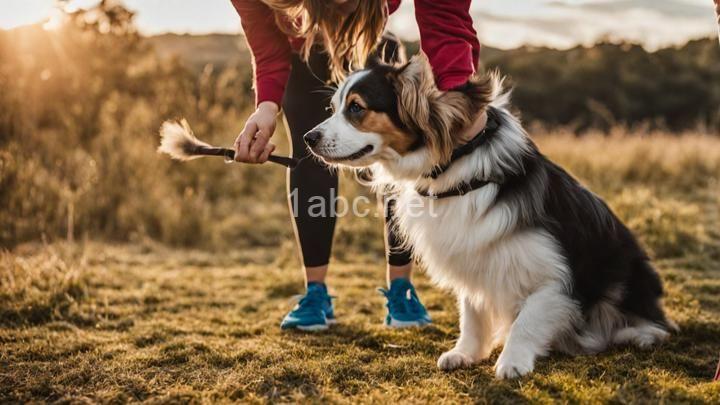The Top Vaccines Every Pet Owner should be Aware of
Introduction:
I. Why Vaccinations Matter:
II. Core Vaccines for Dogs:
1. Rabies Vaccine:
2. Distemper Vaccine:
III. Core Vaccines for Cats:
1. Feline Herpesvirus (FHV) Vaccine:
2. Feline Calicivirus (FCV) Vaccine:
IV. Additional Vaccines Based on Lifestyle and Environment:
V. Vaccine Schedule and Administration:
Conclusion:

The Top Vaccines Every Pet Owner Should Be Aware Of
Introduction:
Hey there, fellow pet owners! We all know how much we love our furry companions, and we would do anything to keep them healthy and happy. One of the most important ways to ensure their well-being is by staying up-to-date with vaccinations. In this blog post, we're going to dive into the world of pet vaccines and discuss the top vaccines every pet owner should be aware of. So buckle up, grab a cup of tea or coffee, and let's get started on this journey of pet health!
I. Why Vaccinations Matter:
Vaccinations play a crucial role in safeguarding our pets' health. Just like how vaccines protect humans from various diseases, they do the same for our beloved four-legged friends. Vaccines work by stimulating the immune system to recognize and combat specific diseases, preventing our pets from falling victim to harmful pathogens.
By getting our pets vaccinated, we can protect them from a wide range of diseases that can have serious consequences on their health. Vaccines not only prevent our pets from getting sick, but they also contribute to the overall well-being of our furry companions.
Moreover, vaccinations are essential in preventing the spread of certain diseases among animals. Just like with humans, if a significant portion of the pet population is vaccinated against a particular disease, it helps create what is known as "herd immunity." This means that even pets who are not vaccinated can be protected because the disease is less likely to spread within the community.
II. Core Vaccines for Dogs:
Now that we understand the significance of vaccinations, let's dive into the core vaccines recommended for dogs. These vaccines are considered essential for every dog's health and well-being. Here are two of the most important ones:
1. Rabies Vaccine:
The rabies vaccine is perhaps the most well-known and crucial vaccine for dogs. In fact, it's mandatory in most regions. Rabies is a deadly virus that can affect both pets and humans. It is primarily transmitted through the bite of an infected animal, and once symptoms appear, it is usually too late for treatment.
By vaccinating our dogs against rabies, we not only protect them from this life-threatening disease but also prevent its transmission to other animals and humans. It's important to note that the rabies vaccine typically requires periodic boosters to maintain its efficacy.
2. Distemper Vaccine:
Distemper is a highly contagious viral disease that affects dogs. It can lead to severe respiratory, gastrointestinal, and neurological symptoms, and sadly, it can be fatal. The distemper vaccine is crucial in preventing this disease and ensuring the well-being of our furry friends.
The distemper vaccine stimulates the immune system to produce antibodies against the virus, providing protection if the dog is ever exposed to the disease. Vaccinating our dogs against distemper is an essential step in keeping them healthy and happy.
III. Core Vaccines for Cats:
Just like dogs, cats also have their own set of core vaccines that are recommended for their well-being. Let's take a look at two of the most important ones:
1. Feline Herpesvirus (FHV) Vaccine:
Feline herpesvirus is a common respiratory infection in cats. It can cause symptoms such as sneezing, nasal discharge, and conjunctivitis. In severe cases, it can even lead to pneumonia. The FHV vaccine helps protect cats from this viral infection, reducing the severity of symptoms and preventing its spread to other feline companions.
2. Feline Calicivirus (FCV) Vaccine:
Another respiratory infection that cats are susceptible to is caused by the feline calicivirus. This virus can cause symptoms similar to FHV, including sneezing, nasal discharge, and oral ulcers. In some cases, it can even lead to more severe complications, such as pneumonia or limb swelling. Vaccinating our cats against FCV is crucial in preventing these infections and ensuring their well-being.
IV. Additional Vaccines Based on Lifestyle and Environment:
In addition to the core vaccines, there are several other vaccines that may be recommended based on a pet's lifestyle and environmental factors. These vaccines are not considered essential for every pet but may be necessary depending on their specific circumstances.
For example, if your dog spends a lot of time outdoors or interacts with other dogs frequently, vaccines such as Bordetella, Leptospirosis, and Lyme Disease vaccines may be recommended. These vaccines offer protection against diseases that are more prevalent in certain environments or lifestyle situations.
It's important to consult with your veterinarian to determine which additional vaccines may be necessary for your pet based on their individual needs and circumstances.
V. Vaccine Schedule and Administration:
Now that we're aware of the different vaccines available for our pets, let's talk about the vaccine schedule and administration.
Following a proper vaccine schedule is crucial to ensure the effectiveness of the vaccines. Puppies and kittens typically receive their first set of vaccines around 6-8 weeks of age, with boosters administered every few weeks until they reach a certain age.
Adult dogs and cats also require regular vaccine boosters to maintain their immunity. The frequency of boosters varies depending on the vaccine and the pet's individual needs. Veterinarians play a vital role in guiding pet owners through this process, providing personalized vaccination plans tailored to each pet's needs.
It's also important to note that some vaccines may have specific age-related considerations. For example, certain vaccines should not be administered to pregnant pets or those with compromised immune systems. Always consult with your veterinarian to ensure your pet's vaccinations are administered at the appropriate times and in the safest manner.
Conclusion:
Phew! That was a lot of information about pet vaccines, but I hope you found it helpful and informative. Remember, keeping your furry friends vaccinated is one of the best ways to ensure their well-being. Vaccines protect them from a range of diseases and contribute to the overall health and happiness of our pets.
We discussed the importance of vaccinations, the core vaccines recommended for dogs and cats, additional vaccines based on lifestyle and environment, and the vaccine schedule and administration. However, it's crucial to remember that every pet is unique, and their vaccination needs may vary. So don't forget to consult with your veterinarian for specific vaccine recommendations tailored to your pet's needs.
Stay informed, stay proactive, and protect your furry friends from preventable diseases. They rely on us, and as responsible pet owners, it's our duty to keep them safe and healthy. So let's roll up our sleeves, take a trip to the vet, and make sure our furry companions receive the best possible care. After all, they bring so much joy and love into our lives, and they deserve nothing less in return.
FREQUENTLY ASKED QUESTIONS
What are vaccines and why are they important for pets?
Vaccines are substances that stimulate an immune response in pets, helping to protect them from certain diseases. They play a crucial role in preventing illness and promoting the overall health of our furry friends. Vaccines contain antigens, which are harmless versions of viruses or bacteria that trigger the immune system to produce antibodies. These antibodies then recognize and fight off the actual disease-causing agents if the pet is exposed to them in the future.Vaccines are important for pets because they can prevent a range of potentially serious or even life-threatening diseases. By vaccinating our pets, we can help ensure their protection against diseases such as rabies, distemper, parvovirus, hepatitis, and feline leukemia, among others. Vaccination not only safeguards our pets' health but also helps to prevent the spread of diseases within the pet population.
Regular vaccination schedules are recommended by veterinarians to ensure that pets receive the necessary protection throughout their lives. The specific vaccines required may vary depending on factors such as the pet's age, lifestyle, and geographical location. It is essential to follow the vaccination guidelines provided by your veterinarian to ensure that your pet receives the appropriate vaccines at the right time.
It's worth noting that vaccines are generally safe for pets, but like any medical intervention, they can have potential side effects. These side effects are usually mild and temporary, such as soreness at the injection site or slight lethargy. Serious reactions are rare but can occur. If you have any concerns or questions about vaccines and their importance for your pet, it's best to consult with your veterinarian, who can provide personalized advice based on your pet's specific needs and circumstances.
In summary, vaccines are important for pets as they help prevent diseases and protect their health. By ensuring our pets are properly vaccinated, we can keep them safe and contribute to the overall well-being of the pet community.
Which vaccines should every pet owner be aware of?
As a pet owner, it is important to be aware of the vaccines that can help protect our furry friends. While the specific vaccines your pet needs may vary depending on their species, age, and lifestyle, there are a few key vaccines that are generally recommended for most pets.One such vaccine is the rabies vaccine. Rabies is a serious viral disease that can be transmitted to humans and other animals, and it is almost always fatal. Vaccinating your pet against rabies is not only required by law in many areas, but it also helps ensure their safety and the safety of those around them.
Another important vaccine is the distemper vaccine. Distemper is a highly contagious viral disease that affects dogs, cats, and other animals. It can cause a range of symptoms, including fever, respiratory problems, and neurological issues. Vaccinating your pet against distemper can help protect them from this potentially deadly disease.
For dogs, the parvovirus vaccine is also crucial. Parvovirus is a highly contagious viral infection that primarily affects puppies, but can also affect adult dogs. It can cause severe gastrointestinal symptoms and can be fatal if left untreated. Vaccinating your dog against parvovirus is a key step in keeping them healthy.
Additionally, cats should receive the feline viral rhinotracheitis, calicivirus, and panleukopenia (FVRCP) vaccine. These vaccines help protect against common respiratory and gastrointestinal diseases that can be very serious, especially for kittens and older cats.
It's also worth mentioning that if you plan to travel with your pet or if they will be in contact with other animals, additional vaccines may be recommended. For example, if your dog will be spending time in areas where ticks are prevalent, a Lyme disease vaccine may be necessary.
Remember, discussing your pet's vaccination needs with your veterinarian is the best way to ensure they are protected from preventable diseases. They can provide personalized recommendations based on your pet's individual needs and circumstances.
When should I vaccinate my pet?
When it comes to vaccinating your pet, it's important to follow a schedule recommended by your veterinarian. Generally, puppies and kittens should receive their first set of vaccinations around 6-8 weeks of age. These initial vaccinations help protect them against common diseases. Additional booster shots are typically given every 3-4 weeks until they are about 16 weeks old.After this initial round of vaccinations, your pet will require regular booster shots to maintain their immunity. The frequency of these boosters will depend on the specific vaccines and your pet's lifestyle. Some vaccines may need to be given annually, while others may have a longer duration of immunity.
It's also important to consider your pet's individual circumstances. If they spend a lot of time outdoors, come into contact with other animals frequently, or if you live in an area where certain diseases are more prevalent, your veterinarian may recommend additional vaccinations.
Remember, vaccinations are crucial for preventing the spread of infectious diseases and keeping your pet healthy. Always consult with your veterinarian to determine the best vaccination schedule for your furry friend. They will be able to provide personalized recommendations based on your pet's age, health, and lifestyle.
Can my pet have an adverse reaction to vaccines?
Yes, it is possible for pets to have adverse reactions to vaccines. While vaccines are generally safe and effective in preventing diseases, there is a small risk of side effects. These reactions can range from mild symptoms like lethargy or soreness at the injection site, to more serious reactions such as allergic reactions or anaphylaxis.It is important to note that adverse reactions are rare, and the benefits of vaccination far outweigh the risks. However, if you notice any unusual or concerning symptoms in your pet after vaccination, it is important to contact your veterinarian immediately. They will be able to assess the situation and provide appropriate medical care if needed.
It is also worth mentioning that veterinarians take precautions to minimize the risk of adverse reactions by selecting the most appropriate vaccines for each individual pet and following proper administration techniques. They will also provide guidance on how to monitor your pet after vaccination and what signs to look out for.
Remember, vaccination is an essential part of keeping your pet healthy and protected against preventable diseases. If you have any concerns or questions about vaccinations, it is always best to consult with your veterinarian, who can provide personalized advice based on your pet's specific needs and medical history.

